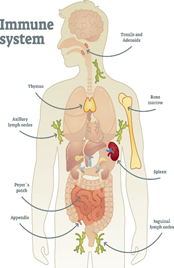WHO celebrates World Immunization Week
Context
The World Health Organization (WHO) celebrates last week of every April as World Immunization Week, with an aim to highlight and promote the use of vaccines to protect people of all ages against diseases.
About
- The week is observed in the last week of April, between April 24 and 30.
- Theme: This year, the World Immunization Week is to be marked with a theme of 'Long Life for All - In pursuit of a long life well lived'.
- The campaign focuses on spreading the message that immunization is one of the world's most successful and cost-effective health interventions and it helps save millions of lives every year.
What is Vaccination?
- Vaccination is a simple, safe, and effective way of protecting against harmful diseases, before one comes in contact with them.
- It uses the body’s natural defenses to build resistance to specific infections and makes your immune system stronger.
- Vaccines train the immune system to create antibodies.
- When you get a vaccine, your immune system responds. It:
- Recognizes the invading germ, such as the virus or bacteria.
- Produces antibodies. Antibodies are proteins produced naturally by the immune system to fight disease.
Immune System
- Immune system is a large network of organs, white blood cells, proteins (antibodies) and chemicals.
- This system works together to protect you from foreign invaders (bacteria, viruses, parasites, and fungi) that cause infection, illness and disease.


